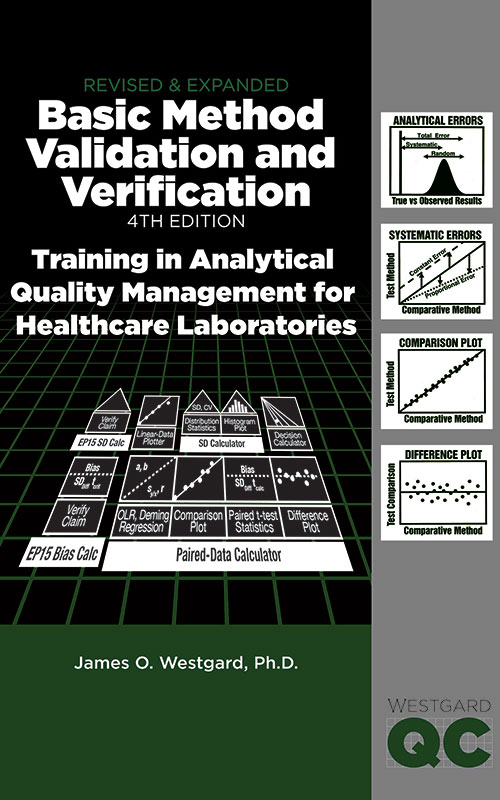Basic Method Validation
The Management of Quality
Quality doesn't happen by itself! Quality must be achieved by work processes that are carefully planned, properly operated, optimally controlled, appropriately measured, and continuously improved, i.e., by proper management of quality. This lesson emphasizes the need for standard laboratory processes to provide consistent quality, as well as standards of quality to guide the management of those processes. (Preview)
| Note: This lesson is drawn from the first edition of the Basic Method Validation book. This reference manual is now in its fourth edition. The updated version of this material is also available in an online training program |
MV - The Management of Quality
- Standard, standard process, standard of quality
- A standard process for managing quality
- Priorities for developing standard quality management processes
- Getting started with quality standards
- Convenient sources of quality standards
- What's the point?
- References
Quality must be assured, not assumed! As illustrated in myths of quality, ideas about the current state of quality in healthcare and laboratory testing may be influenced by mistaken yarns, theories, and hypotheses, i.e., myths that are not supported by fact or data. Quality doesn't happen by itself! Quality must be achieved by work processes that are carefully planned, properly operated, optimally controlled, appropriately measured, and continuously improved, i.e., by proper management of quality. This lesson emphasizes the need for standard laboratory processes to provide consistent quality, as well as standards of quality to guide the management of those processes.
Standard, standard process, standard of quality
Standard has many meanings in the laboratory. In analytical terms, a standard solution provides a known value for calibration of a testing process and represents purity, truth, and correctness. In management terms, a standard process provides a consistent way of doing things, e.g., a standard testing process provides a well-defined protocol for performing a laboratory test. Likewise, a standard method validation process provides a regular and systematic way for evaluating the performance of a laboratory testing process. [Note that the idea of "process" can be applied to any repeated activity, whether physical or mental; both physical work processes and management decision processes need to be standardized or systematized to assure consistent and reliable results.]
Another important term is standard of quality which is a criterion or statement that describes the acceptable level of something. For an analytical test, we need to know how quickly a test result needs to be reported, as well as how close the result must be to the true or correct value. A standard for turnaround time is more easily understood than a standard for truth or correctness. For example, it is obvious that turnaround time should be stated in units of time, usually minutes. These units are understood by both the party requesting the test and the party providing the service. The party ordering the test defines the requirement on the basis of the medical service being provided. Both parties can measure whether the observed performance satisfies the requirement.
Analytical quality is more difficult because it involves technical concepts such as imprecision and inaccuracy, which are not always understood by laboratorians and are certainly even less well understood by the physicians who order the tests or the patients who are the ultimate consumers of the test results. Customers and consumers of laboratory services can not easily define the analytical quality that is required (at least not in the analytical terms desired by the laboratory), nor can they measure or assess analytical quality. The laboratory, therefore, must take full responsibility for managing the analytical quality of its services.
We invite you to read the rest of this article.
This article, plus many more important, updated, and expanded chapters are available in the Basic Method Validation manual, 4th Edition which is available at our online store.
